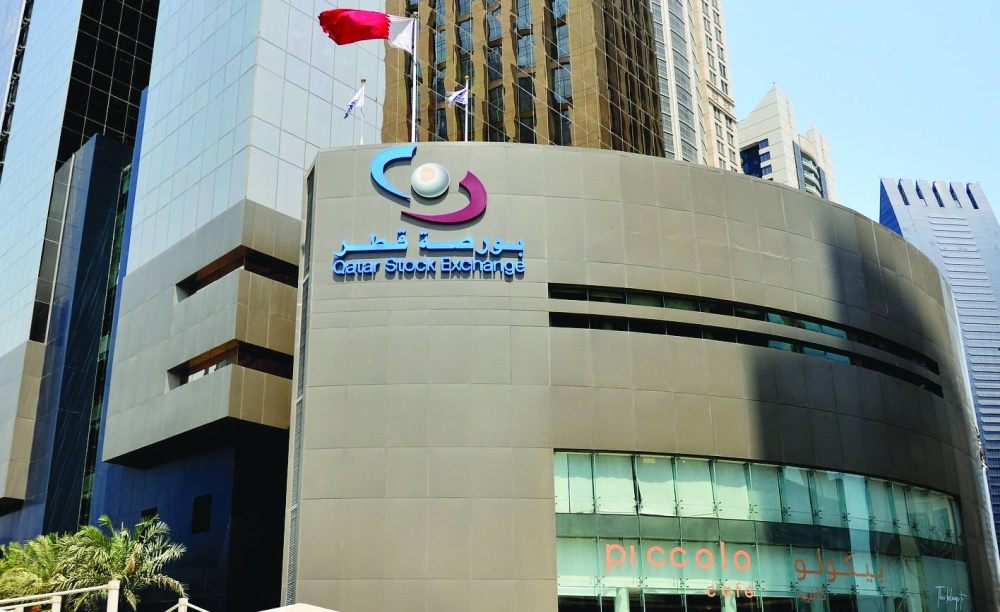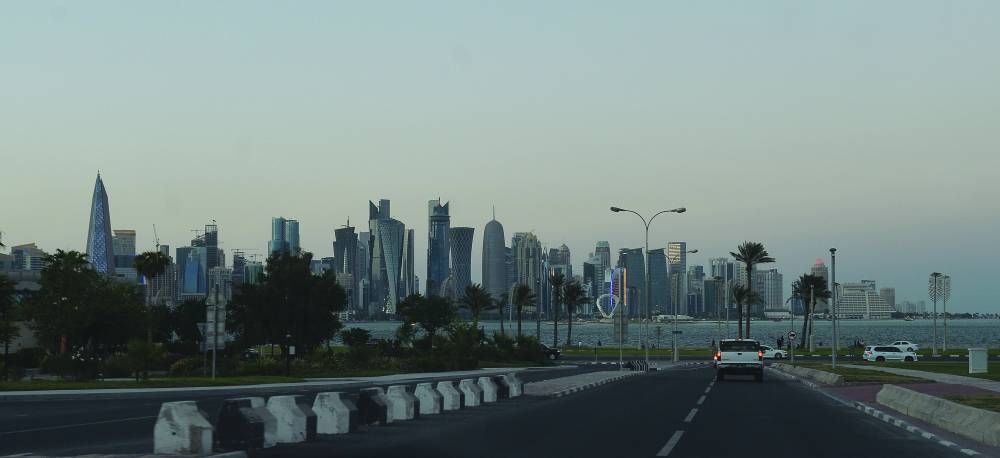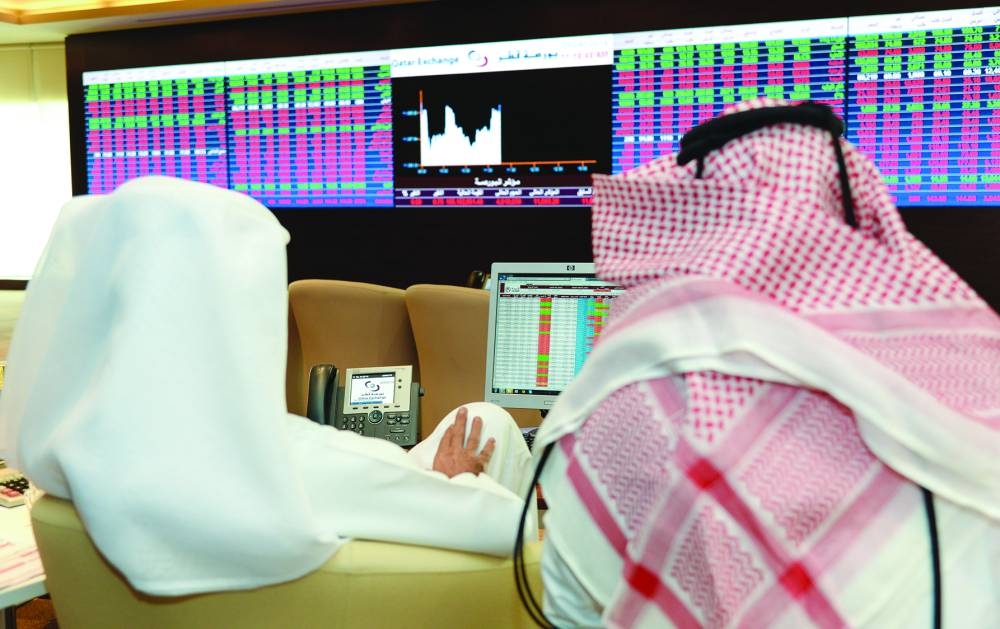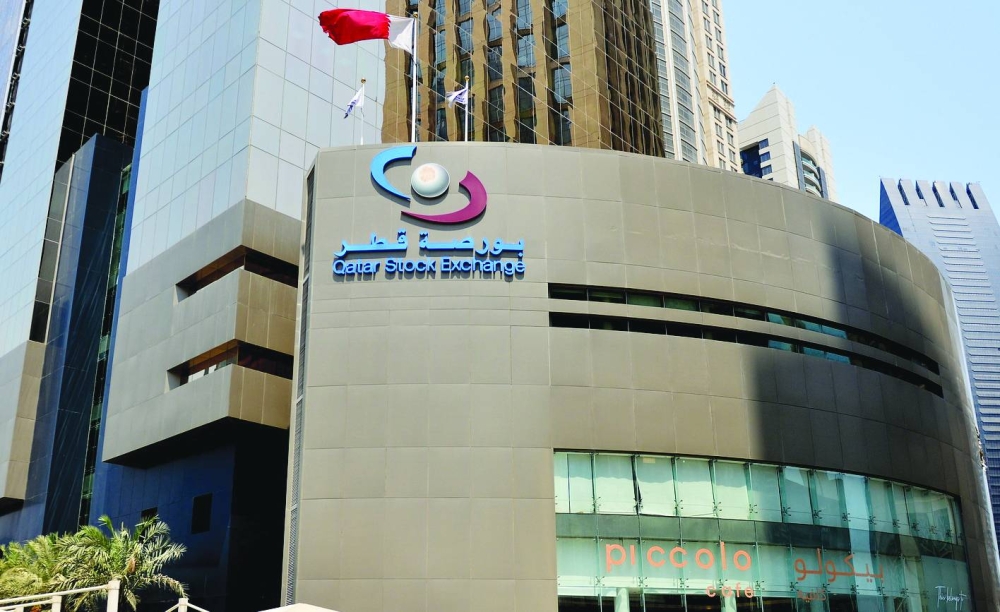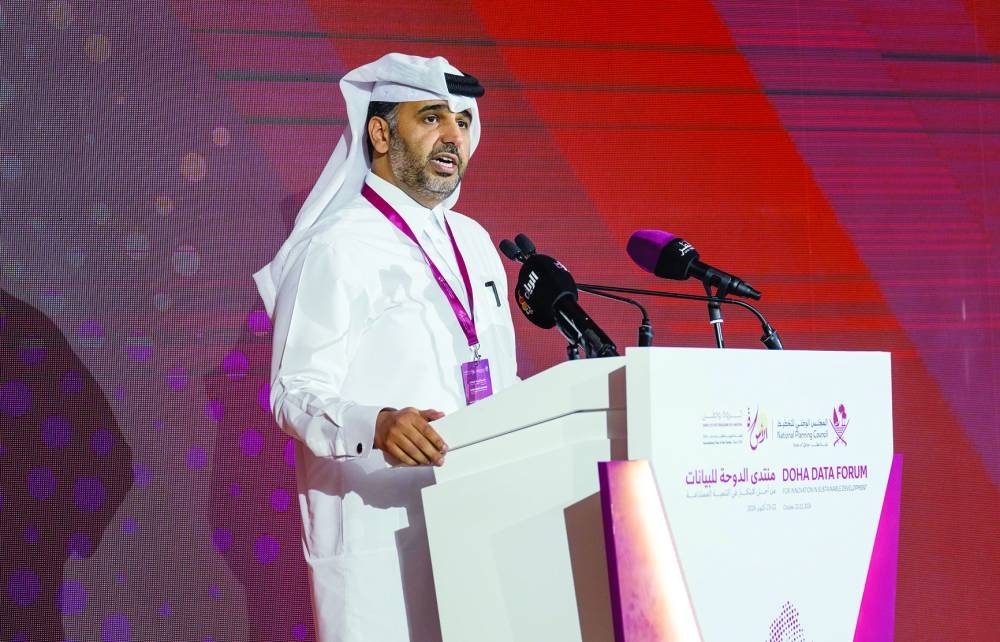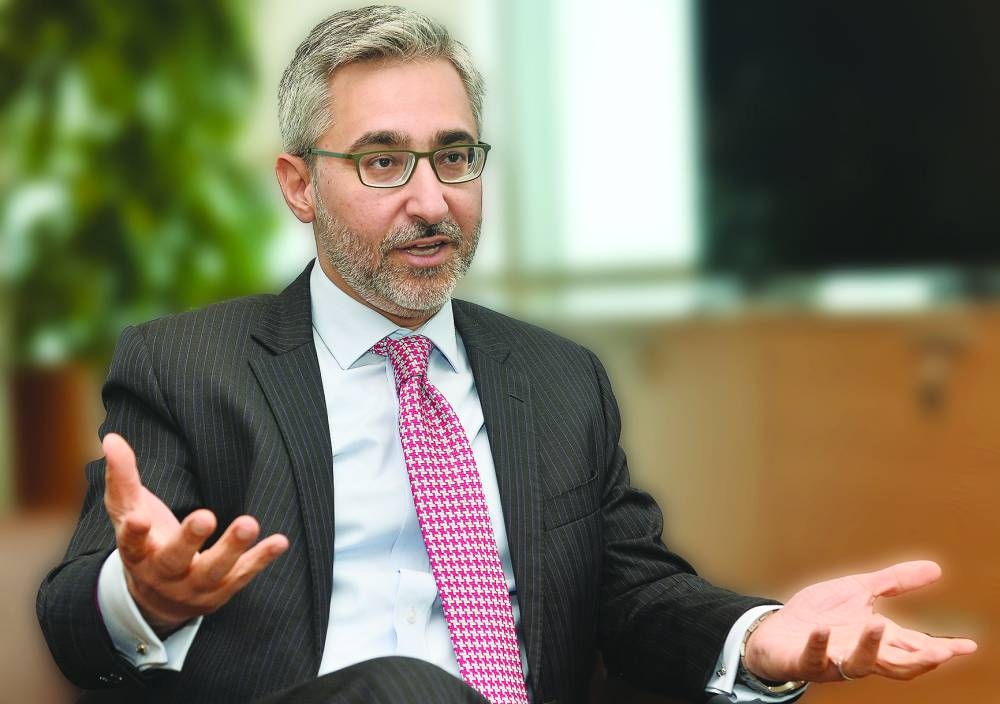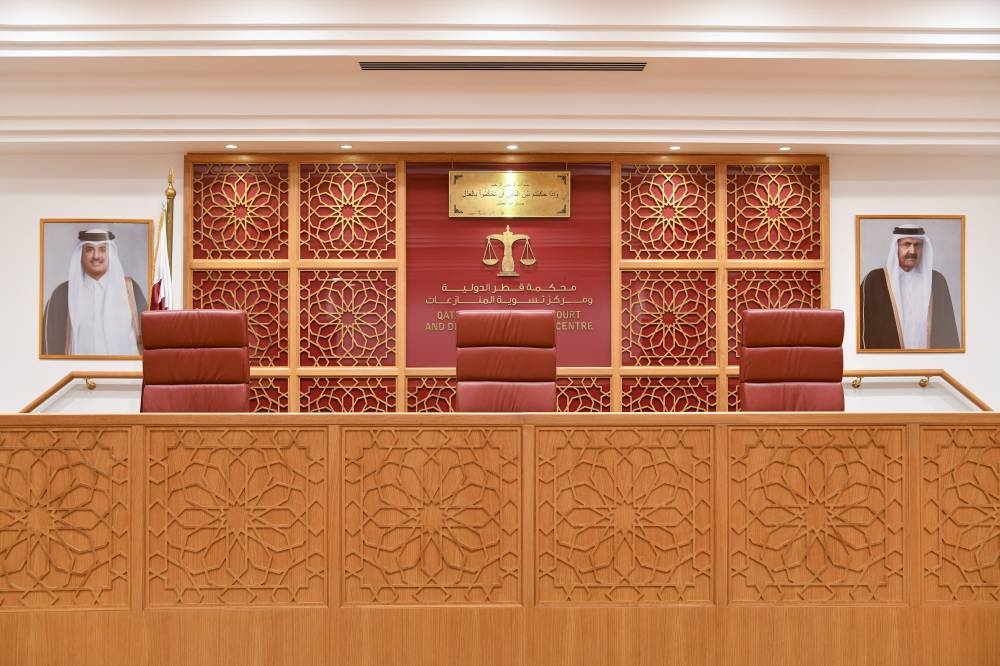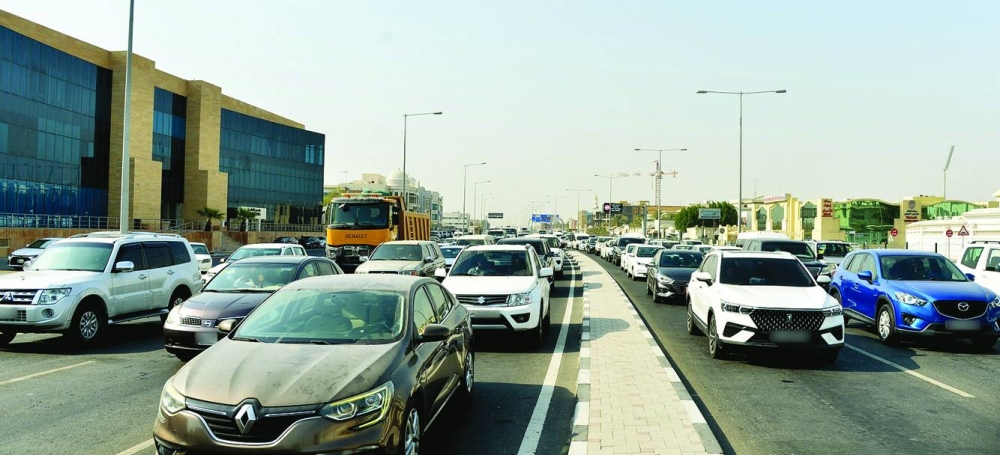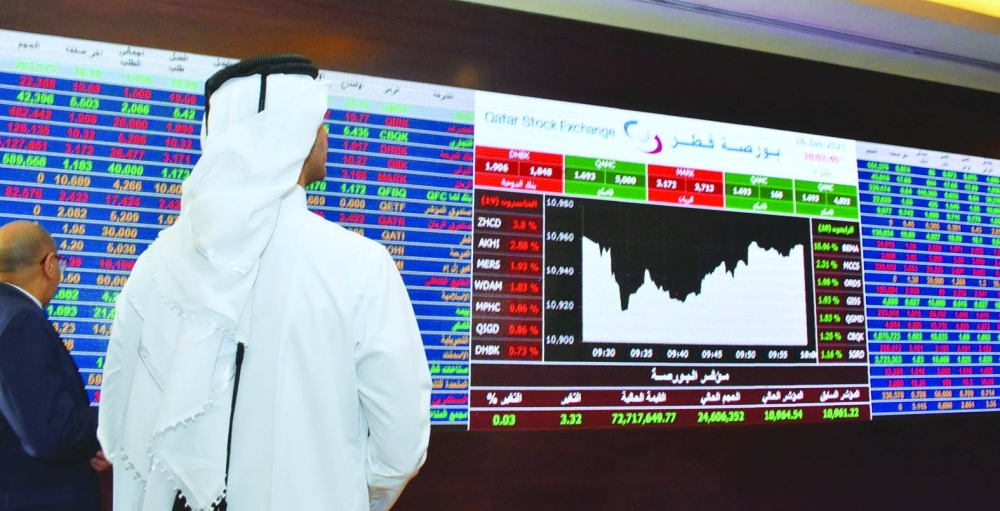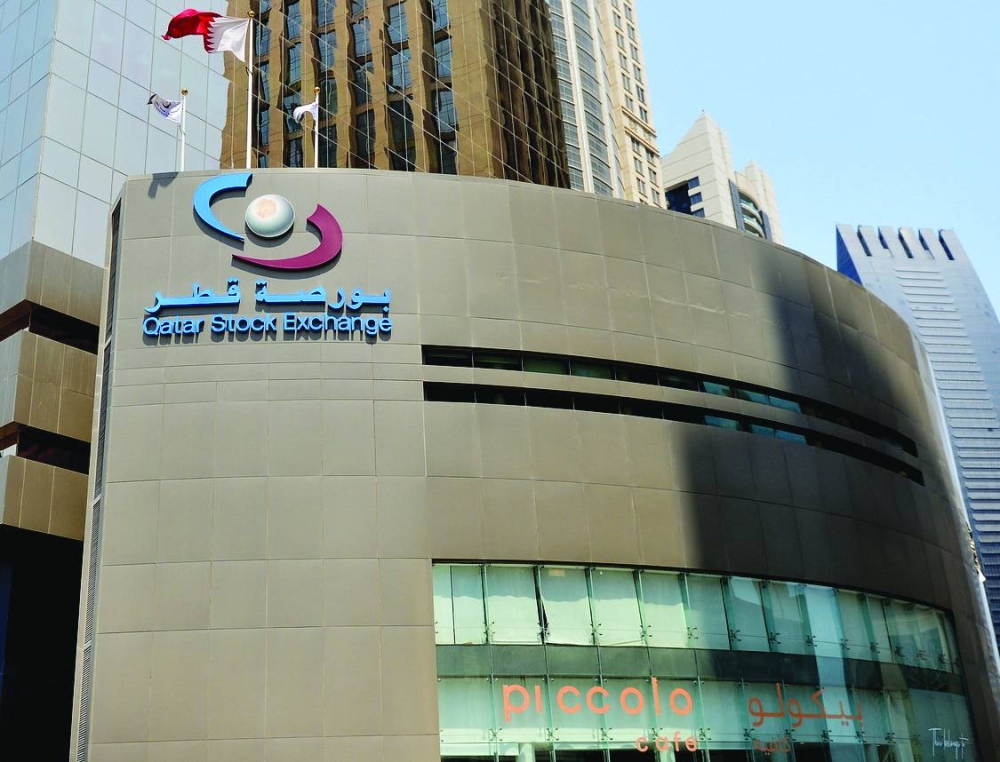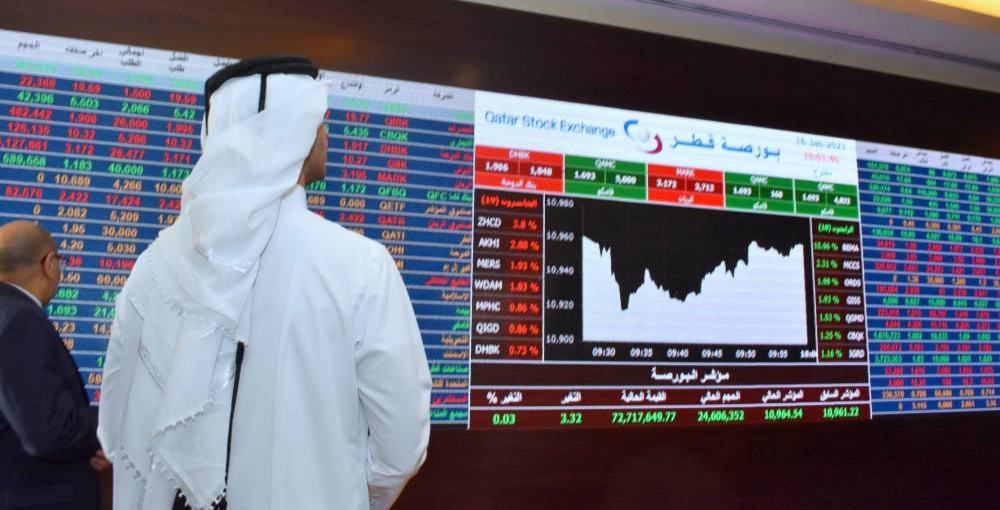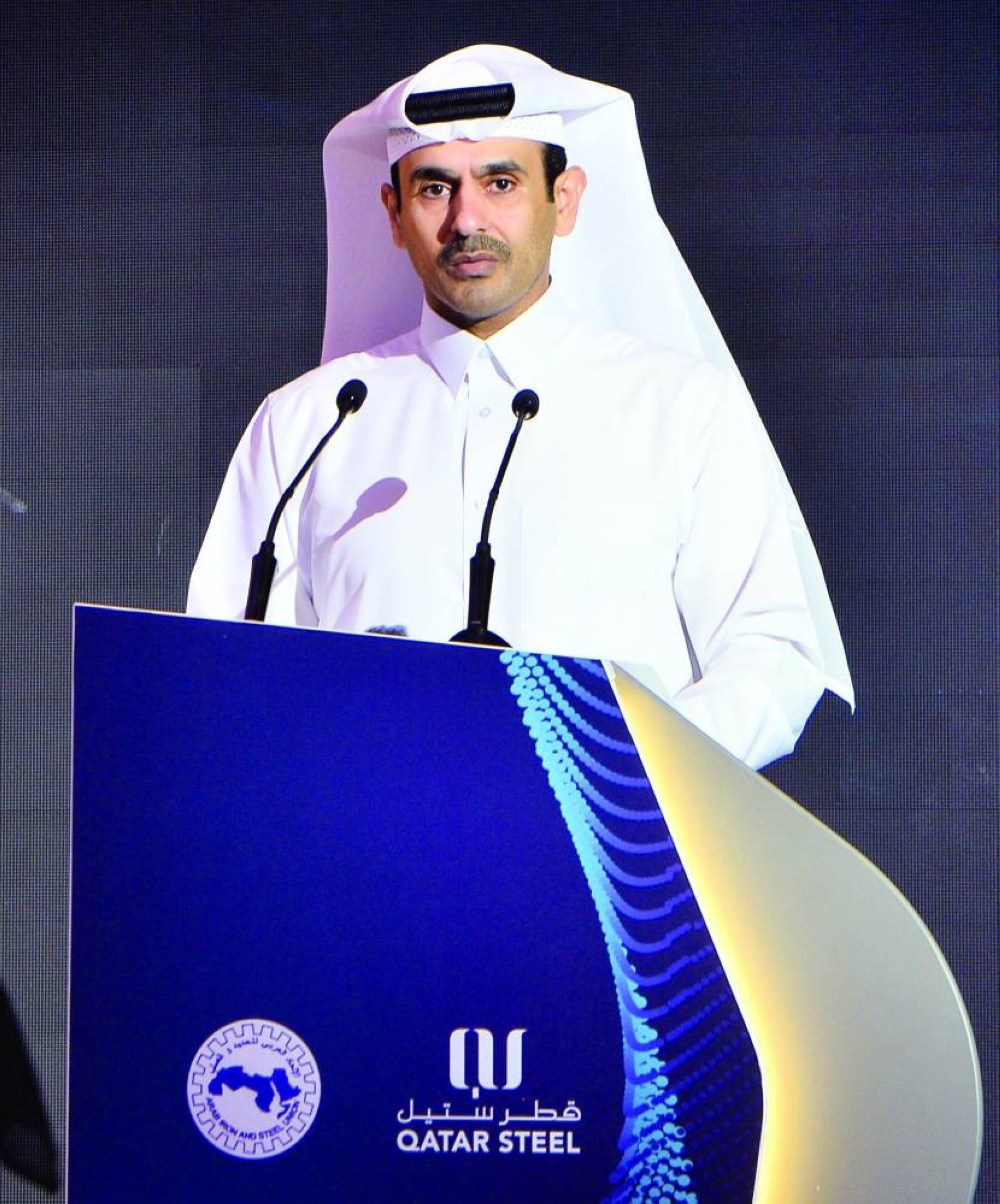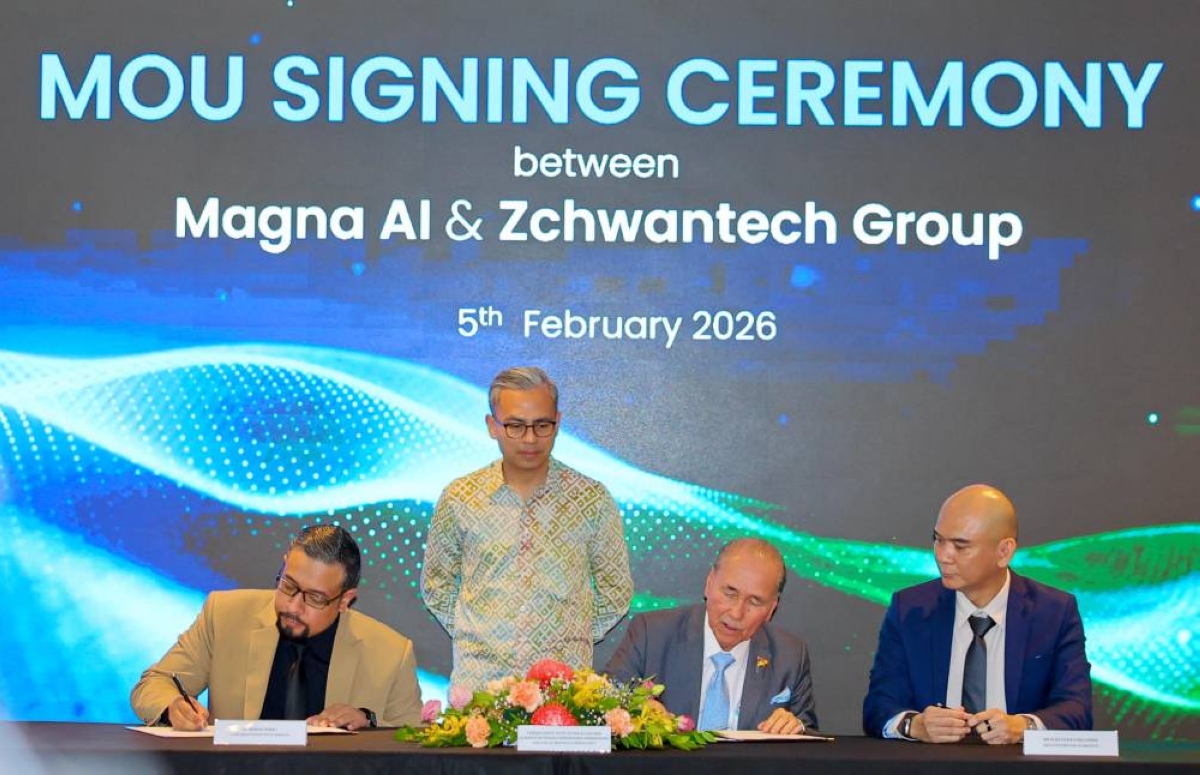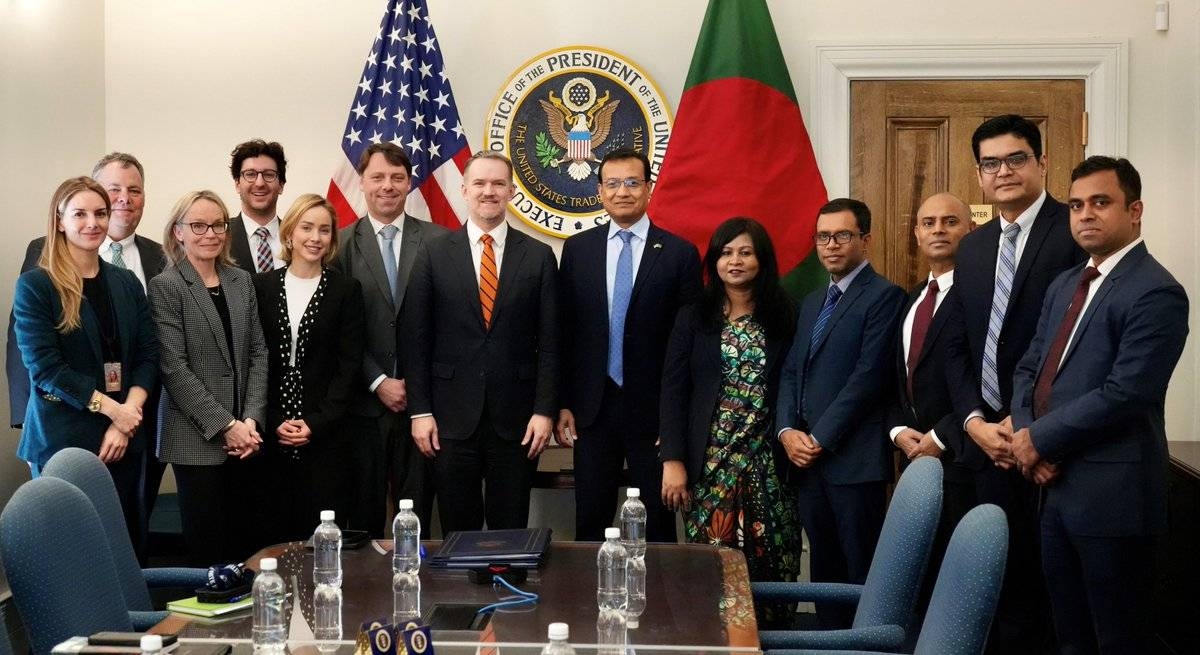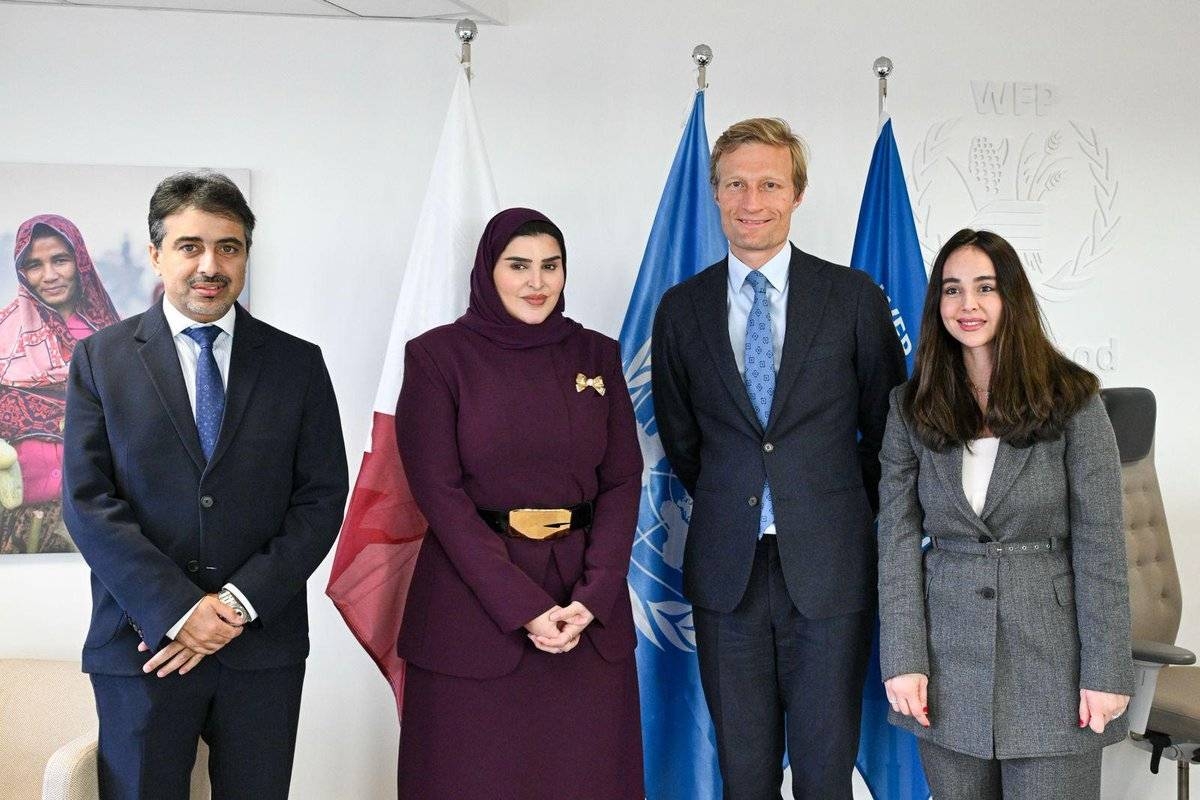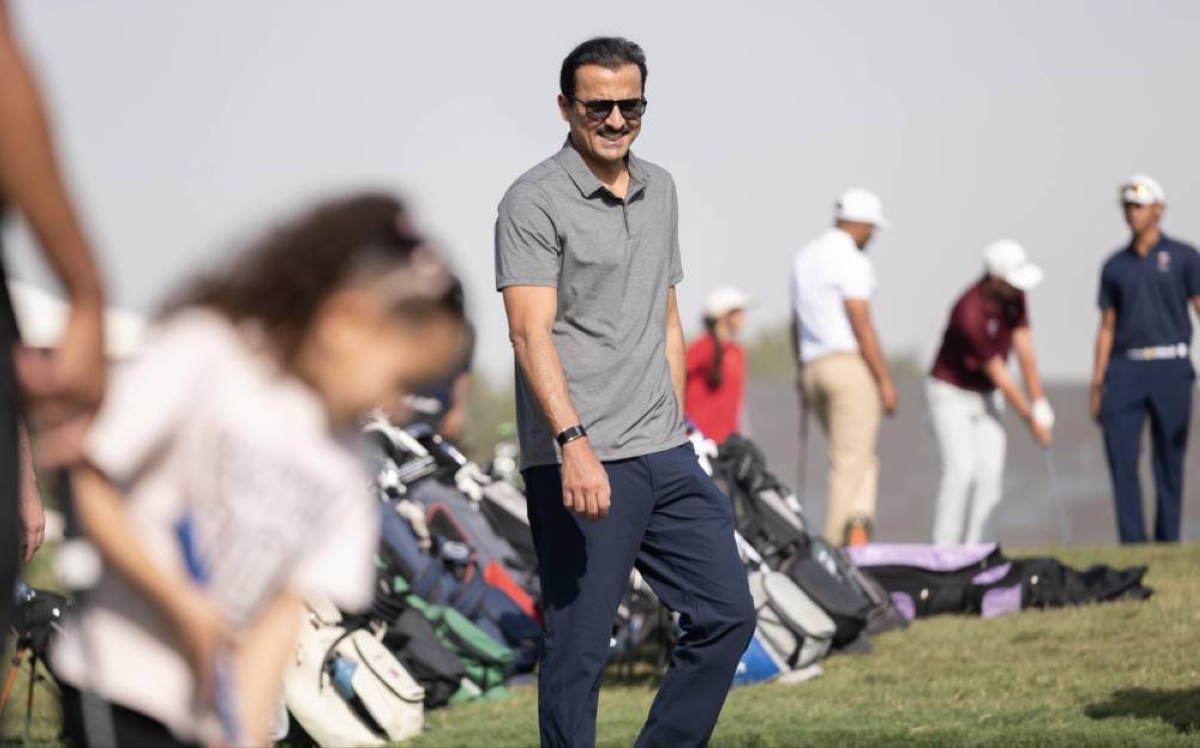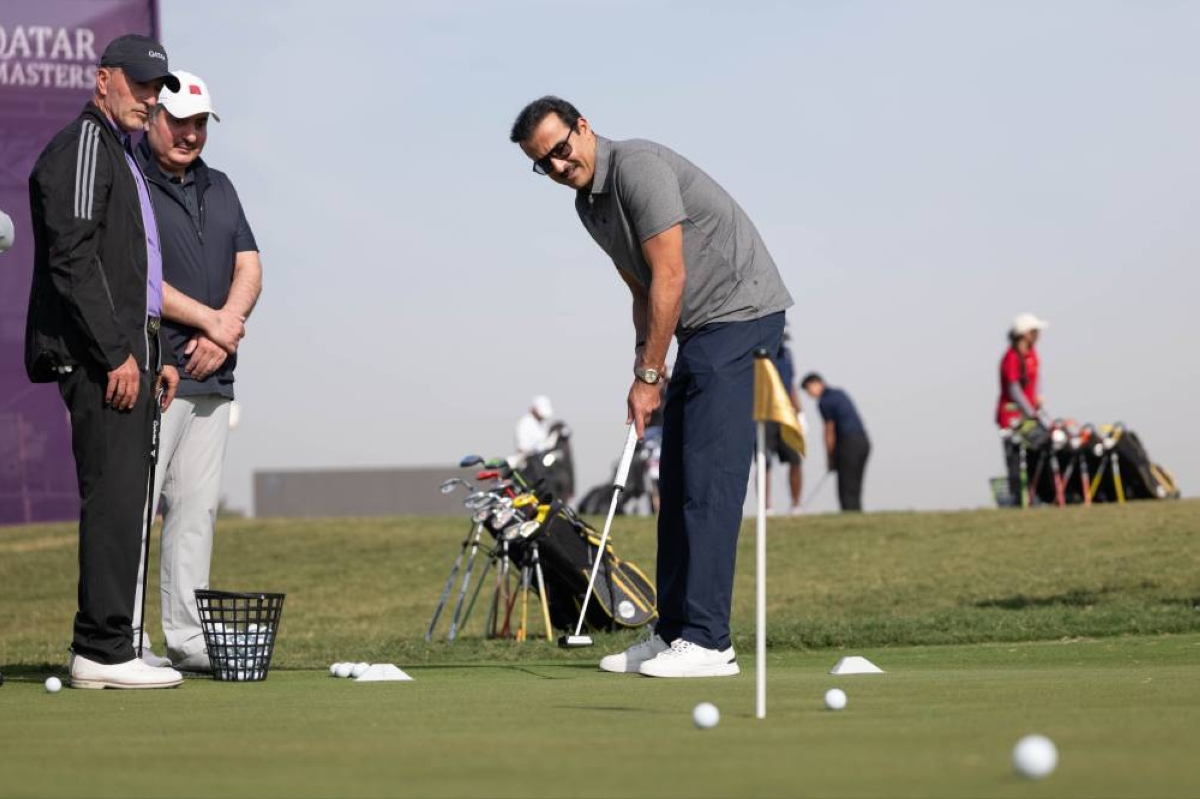The Qatar Stock Exchange on Monday fell about 56 points on the back of selling pressure, especially at the telecom and industrials counters.The foreign funds were seen net profit takers as the 20-stock Qatar Index shed 0.53% to 10,504.28 points, although it touched an intraday high of 10,593 points.The foreign individuals were also seen net sellers in the main market, whose year-to-date losses widened to 3.01%.As much as 48% of the traded constituents were in the red in the main bourse, whose capitalisation was down QR0.43bn or 0.07% to QR621.88bn on the back of microcap segments.The Gulf funds were seen bearish in the main market, which saw as many as 0.1mn exchange traded funds (sponsored by Masraf Al Rayan and Doha Bank) valued at QR0.22mn trade across 10 deals.The Islamic index was seen declining faster than the other indices in the main bourse, whose trade turnover fell amidst higher volumes.The Arab individuals’ weakened net buying had its influence in the main market, which saw no trading of treasury bills.However, the domestic funds were net buyers in the main bourse, which saw no trading of sovereign bonds.The Total Return Index shed 0.53%, the All Islamic Index by 0.54 and the All Share Index by 0.38% in the main market.The telecom sector index tanked 1.27%, industrials (0.74%), banks and financial services (0.38%) and transport (0.23%); while real estate gained 0.99%, insurance (0.28%) and consumer goods and services (0.13%).Major shakers in the main bourse included Ooredoo, Qatar General Insurance and Reinsurance, Qamco, Industries Qatar, Al Khaleej Takaful, Dukhan Bank, Mesaieed Petrochemical Holding and Nakilat.In the venture market, Techno Q saw its shares depreciate in value.Nevertheless, Ezdan, Salam International Investment, Doha Insurance, Aamal Company, Doha Bank and Qatar Oman Investment were among the gainers in the main market.In the junior bourse, Al Mahhar Holding saw its shares appreciate in value.The foreign institutions turned net sellers to the tune of QR19.51mn compared with net buyers of QR25.18mn on October 27.The foreign individual investors were net sellers to the extent of QR3.76mn against net buyers of QR5.11mn the previous day.The Gulf institutions turned net profit takers compared with net buyers of QR3.67mn on Sunday.The Arab individuals’ net buying declined noticeably to QR0.78mn against QR3.84mn on October 27.However, the domestic funds turned net buyers to the tune of QR23.82mn compared with net sellers of QR8.42mn the previous day.The Gulf retail investors were net buyers to the extent of QR0.58mn against net sellers of QR3.94mn on Sunday.The Qatari individuals turned net buyers to the tune of QR0.29mn compared with net sellers of QR25.45mn on October 27.The Arab institutions had no major net exposure for the second straight session.Trade volumes in the main market were up 1% to 235.3mn shares, whereas value shrank 7% to QR418.5mn despite 19% higher transactions at 15,020.The venture market saw a 34% contraction in trade volumes to 2.53mn equities, 33% in value to QR5.9mn and 12% in deals to 106.

Santhosh V. Perumal
Santhosh V. Perumal, a postgraduate in Econometrics with an advance qualification in Capital Markets and Financial Services, is Gulf Times' journalist. His coverage areas are debt and equity, hydrocarbons, international trade, environment, banks, insurance and real estate. Previously, he was in New Delhi, India as Senior Finance Correspondent of PTI.
Most Read Stories
1
2
3


